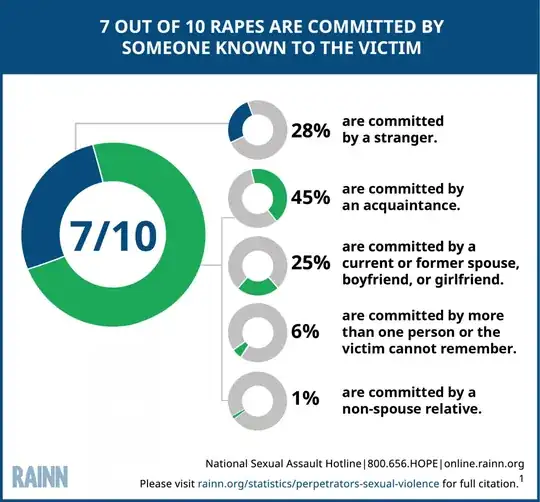From a tweet thread started by https://twitter.com/VocalFriez/status/1046487752429072384 , a citation is made of RAINN (the Rape, Abuse & Incest National Network), saying that the overwhelming majority of rapes do not involve relatives:
Rape, unfortunately, happens too often. An intersection no one seems to be discussing is that many survivor stories of late, including those of Muslim women, begin with being alone with their non-mahram perp, by choice! Free-mixing isn’t permissible for reasons. Stop doing it. [Wikipedia link added for convenience]
To further illustrate my point, here’s a handy infographic. Most rapes are committed by a friend/acquaintance. Muslimahs [female Muslims] A.) should not have real life male friends anyway and B.) should never be alone with non-mahrams. My intention was never to blame those who’ve been raped.
In a related tweet here, she said
I posted the study from RAINN that proves what you’re saying wrong [about rape predominantly occurring by family members]. Friends/acquaintances account for the majority of rapes. Family members account for the least.
The RAINN page Perpetrators of Sexual Violence: Statistics indeed does claim that 1% of rapes involve a "non-spouse relative", citing "Department of Justice, Office of Justice Programs, Bureau of Justice Statistics, National Crime Victimization Survey, 2010-2014 (2015)."
Putting aside the fact that spouses are also mahrams, and whether her advice would help prevent rape, and whether the relationship between perpetrator and victims may differ by country, I'd like to know whether the claim that the overwhelming majority of rapes don't involve relatives is accurate.
In the United States, do an overwhelming majority of incidents of rape not involve relatives?
